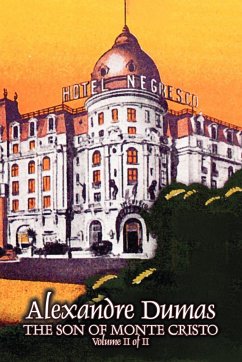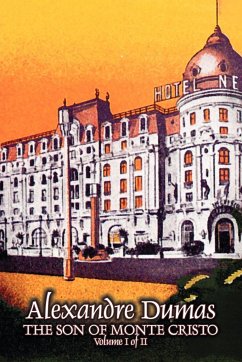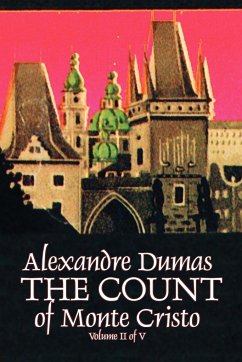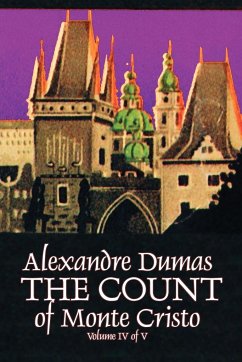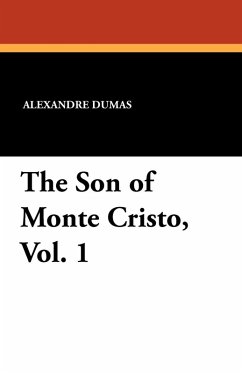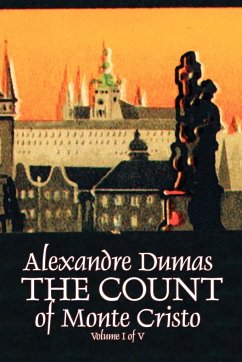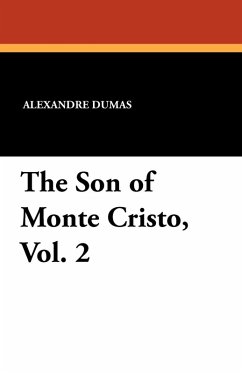
The Son of Monte-Cristo, Volume II
Versandkostenfrei!
Versandfertig in über 4 Wochen
29,99 €
inkl. MwSt.
Weitere Ausgaben:

PAYBACK Punkte
15 °P sammeln!
Spero, the son of Monte-Cristo, was peacefully sleeping in another room, while, gathered around the table in the dining-room of Fanfaro's house, were Monte-Cristo, Miss Clary, Madame Caraman, Coucou, and Albert de Morcerf, ready to listen to the story of Fanfaro's adventures, which, as narrated at the close of the preceding volume, he was about to begin. The following is Fanfaro's narrative: It was about the middle of December, 1813, that a solitary horseman was pursuing the road which leads through the Black Forest from Breisach to Freiburg. The rider was a man in the prime of life. He wore a...
Spero, the son of Monte-Cristo, was peacefully sleeping in another room, while, gathered around the table in the dining-room of Fanfaro's house, were Monte-Cristo, Miss Clary, Madame Caraman, Coucou, and Albert de Morcerf, ready to listen to the story of Fanfaro's adventures, which, as narrated at the close of the preceding volume, he was about to begin. The following is Fanfaro's narrative: It was about the middle of December, 1813, that a solitary horseman was pursuing the road which leads through the Black Forest from Breisach to Freiburg. The rider was a man in the prime of life. He wore a long brown overcoat, reaching to his knees, and shoes fastened with steel buckles. His powdered hair was combed back and tied with a black band, while his head was covered with a cap that had a projecting peak. The evening came, and darkness spread over the valley: the Black Forest had not received its name in vain.




